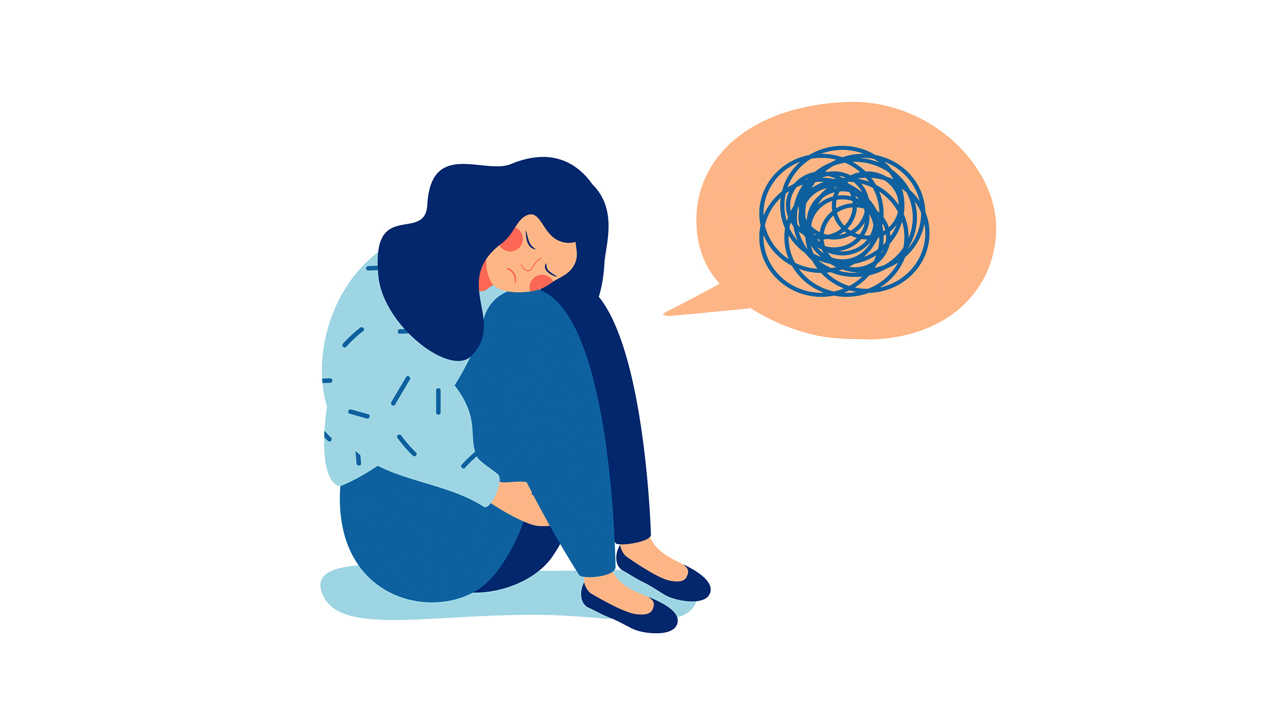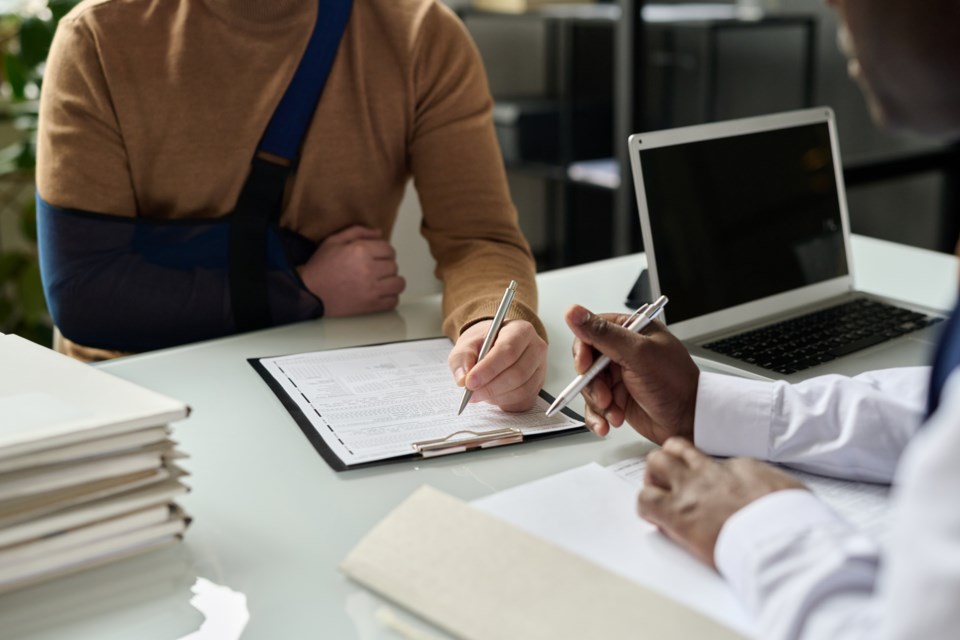Almost everyone in modern society has some understanding of anxiety as a mental illness. Recent statistics have shown that almost 40 million Americans have experienced anxiety in some form, which means that exposure to the illness is spreading quickly.
Therefore, the general public is now aware that the main symptoms of anxiety include unexplained feelings of worry or panic. These sudden moods are enough to cause the individual to avoid social or stressful situations. However, there are more symptoms of anxiety than most people realize, and this list of people includes those that have already experienced the mental illness first-hand.
While anxiety is considered a mental illness, it can also cause a series of physical symptoms. These can vary from person to person, so let’s look at some of the physical symptoms of anxiety and why the body reacts this way.
Fatigue
Many anxiety patients are aware of the fatigue that comes with the illness. The intrusive and anxious thoughts are exhausting, and your brain is working overtime to combat the negativity swirling in your mind. Let’s also not forget that this battle makes it difficult to get a good night’s sleep. It’s no wonder that anxiety causes mental fatigue.
Unfortunately, a lot of people are unaware that anxiety can also cause you to feel physically drained. Anxiety can trigger your body’s stress response. This response causes neurotransmitters to release chemicals called adrenaline and cortical steroids to fill your body to help you fight off the stimulus that is triggering your stress. However, the stimulus that your body wants to fight is often non-existent when it comes to anxiety. Therefore, your body must work harder to remove the excess chemicals from your bloodstream, leaving you physically fatigued. That is why anxiety patients may also want to focus on stress relief techniques alongside their other treatments. Also, it doesn’t hurt to get some decent rest.
Shortness Of Breath
Your body tries to stay alert when you are experiencing anxiety. This is demonstrated by the stress response detailed above; however, your body also prepares its fight or flight response in other ways.
For example, your body needs more oxygen when it feels like there is danger ahead. Therefore, it will respond by trying to breathe in as much air as possible in quick succession. Unfortunately, the human body is not programmed to deal with this rapid change in breathing patterns, which is why you will find yourself short of breath when faced with a stressful situation or a panic attack. Sometimes, this rapid breathing can be so severe that it causes chest pains, which is why it is important to learn proper breathing techniques. These exercises should revert your breathing to normal and reduce your overall stress response, allowing you to think clearly once more.
Increased Heart Rate
Another result of the fight or flight response is the increase in your heart rate. As you already know, your body feels like it needs more oxygen to deal with the stressful situation that you are facing. However, your body can only deliver the additional oxygen to your muscles via your blood cells. Therefore, your heart will start to pump quickly to get this oxygen around your body as fast as possible. In some instances, your heartbeat will reach up to 200 beats per minute during a panic attack.
There are some cases where the patient’s heart rate cannot maintain a regular rhythm, which is what causes heart palpitations. Again, it is important to lower your heart rate during a panic attack by performing the correct breathing exercises. What’s more, anxiety patients can also improve their body’s response to this physical symptom by lowering their average heart rate with regular exercise. Regular exercise will lower your resting heart rate, which means it will not climb as high when you are anxious, reducing your risk of experiencing heart palpitations.
Trembling
Above, it was mentioned that it was important to try and remove the excess adrenaline and steroids from your body because it can lead to fatigue. However, there is a larger physical response to an excess of these chemicals, and this is what causes trembling or shaking during an anxiety attack.
The main reason behind this reaction is that your bodily chemicals are trying to prime your muscles for a response. Unfortunately, anxiety can make it difficult for your body to receive the appropriate signals, especially when there is no physical stimulus to attack. Therefore, your muscles become overloaded with adrenaline and will begin to twitch in anticipation of movement.
There is nothing immediately dangerous about trembling during an anxiety attack. Your body is just responding the only way it knows how, after all. You can reduce your trembling by putting your muscles to good use by going for a jog or cleaning the house. However, you may not always be able to immediately engage in these activities which is why it is important to learn about relaxation and breathing techniques.
What’s more, most anxiety patients find it useful to learn more about their condition. You can do this by asking your doctor about your illness; however, it is also wise to get some perspective from other people that have encountered anxiety by using stoic thoughts on anxiety. A website like Stoic Quotes can provide you with quotes to help you deal with your anxiety. These small snapshots of wisdom can provide some much-needed perspective on your anxiety, helping you to recover and regain some peace of mind.
Headaches
All the physical symptoms described so far can occur during a panic attack, the most common physical symptom of anxiety that is experienced during a triggering event or stressful situation. However, anxiety is a mental health condition that persists for months or even years. This means that there are physical symptoms that can build up over time, such as headaches.
Anxiety headaches are caused by tension, a tension that comes from your muscles being strained for too long. In fact, most anxiety patients aren’t aware that their muscles are tense until it is pointed out. Of course, the tension in the head muscles is going to result in a headache.
Headaches are uncomfortable at the best of times, and these afflictions can cause you to think poorly or miss out on key events. These outcomes are only going to further your anxiety symptoms, and the process becomes a spiral. Fortunately, over-the-counter medicine will stave off your headaches so make sure that you always have some to hand. If this medication fails, you can always seek out further treatment, such as a body massage or warm shower. Also, remember to drop your shoulders. Tense shoulders are a key trait of nervous people, and you may be unaware that you are standing this way.
Nausea
The chemicals sent throughout your body aren’t only absorbed by your muscles during an anxiety attack. These neurotransmitters also find their way into your stomach, speeding up your digestion so that you have more energy to respond to a perceived threat. While there is no danger of this occurring during the anxiety attack, it is very difficult to remove these chemicals from your digestive tract, which means that they can build up over time.
Repeated bouts of anxiety attacks can cause the leftover neurotransmitter chemicals to take the place of your gut’s natural biomes, which are naturally occurring substances needed for healthy digestion. As a result, too much exposure to anxiety-inducing situations can leave you feeling nauseous. If this process continues, then you may find that you have trouble passing gas or stools.
Since anxiety is a mental illness, you cannot cure yourself of the physical symptoms until you have treated your mind. However, peppermint has been proven to reduce the effects caused by anxiety-based nausea, so it is worth giving a try if you are struggling with this physical symptom.
Muscle Aches
Muscle aches are a common symptom that coincides with fatigue. It is usually a sign that you are working yourself too hard and you need rest. While it is true that you need rest when you are struggling with anxiety, muscle aches often go unnoticed.
Anxiety is an illness that puts your body through a lot without you noticing. Most of the physical defenses that your body has to cope with this mental illness occur inside the body so you cannot see how hard it is working at all times. It is no wonder that your muscles will begin to ache over time, and this is especially hard when they are constantly filled with neurochemicals that they do not need. Therefore, you should remember that your body is working overtime and do not feel ashamed if you need an extra rest every now and again. Make sure that you are getting plenty of sleep, and you will be better equipped to deal with the challenges that come with anxiety.
High Blood Pressure
Your blood pressure is defined by how much of your blood pushes against your artery walls as it passes through your system. Therefore, high blood pressure will cause it to push against your arteries further, while low blood pressure will shrink away. There are inherent long-term effects of both of these conditions; however, only high blood pressure is a common concern for people that have anxiety.
It will take a long time for you to feel the effects of high blood pressure, and blood pressure is often raised during stressful situations. As a result, you are more likely to suffer from high blood pressure because of anxiety. Unfortunately, high blood pressure is linked to bad blood circulation, heart disease, and strokes. Since these conditions are stressful enough to think about, you will need to find ways to lower your blood pressure.
The best way to keep your blood pressure steady is by eating a healthy diet and exercising regularly. However, you can also reduce your blood pressure by giving up alcohol, nicotine, and caffeine. Since all these substances act as stimulants, it is wise to steer clear of them during phases where you are likely to experience an anxiety attack.
Sickness
On top of everything else that comes alongside anxiety, it is also worth noting that you may find yourself getting sick more often when you are struggling with this mental illness. You won’t come down with anything serious, possibly the common cold or a stomach bug. However, people with anxiety are more likely to become ill throughout the year than those so not.
Again, this is all because of your body’s stress response. The cortical steroids released during an anxiety attack are perfectly safe in small doses. Unfortunately, this chemical starts to attack your immune system if it is not used up in time. Therefore, you become more susceptible to common illnesses during high periods of stress, and you may find that it takes longer for any cuts and bruises to heal.
There is nothing else you can do to increase your immune system during this time, just follow the guidance already listed above. This response is perfectly normal, and it can affect people who experience stress that isn’t related to anxiety. However, it is always wise to be prepared for everything that anxiety will throw at you.
Summary
Anxiety is a mental health issue that is currently a hot topic among the general public. There is no guarantee that you will experience all the physical symptoms that have been listed above, but it is important to know what you may be up against. Everyone will have a different exposure to anxiety, which means that you will need to find a set of coping mechanisms that work for you.
It may be a difficult journey, but you have made the right decision by researching the condition. There will be times when you feel alone, so you should always remember that anxiety is an illness that can affect anyone at any time. Look around and you may find help in some unlikely places. Try to talk about how you feel, and it will make your battle against anxiety easier.








Leave a Reply
You must be logged in to post a comment.